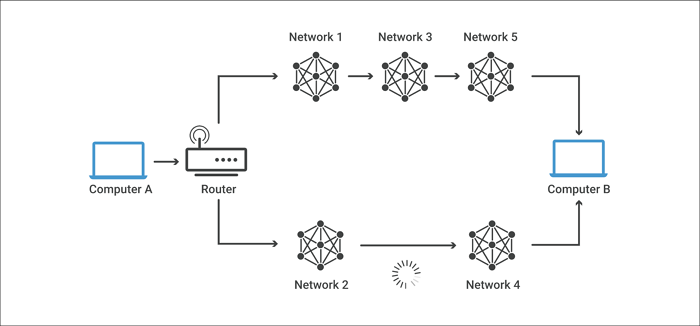Network Switch vs. Router: What's the Difference
Whether as an individual or business, building a network will require you have both the network switch and router in your network design. However, both are distinct components of your network.
In this article, you will learn about the switch vs router differences, their uses, and the advantages and disadvantages of each one. Let's begin by first looking at what a network switch or router is.
What Is a Network Switch?
A network switch is a hardware responsible for connecting multiples IT devices such as servers, printers, and PCs within a single Local Area Network (LAN). Switches operate in Layer 2 of the OSI model(Open Systems Interconnection model).
If you desire a small business network, there is no other way to connect your devices without utilizing a Network Switch. Once all your devices are interconnected, the network switch uses their MAC addresses to enable resource sharing and information exchange.
In addition, the network switches route data from multiple ports (input) through a single port (output) to its destination. This makes data transmission between IT devices possible.

What Is a Network Router?
Unlike the network switch, a router can also be called the switch of other network switches because it connects multiple network switches to form a massive network. The function of a router is beyond the scope of a single LAN; rather, it is the link between numerous LANs, irrespective of their locations.
Routers are involved in the OSI model's physical, network, and data link layers. They forward data packets to multiple networks (each network is connected to various devices) and route network traffic by determining the optimized path for each data packet.
Also, routers give connected devices access to the internet, but unlike firewalls, routers do not encrypt networks before routing them, nor do they protect your network from threats.

Switch vs. Router: What Is the Difference?
Having looked at what a switch vs router is, the following table shows the distinctive differences between them in terms of usage.
| Switch | Router |
|---|---|
| It operates in Layer 2 of the OSI model | Routing occurs in Layer 3 of the OSI model |
| It is used in LAN | It is used in both LAN and WAN (Wide Area Network) |
| Network switching is possible using MAC addresses | Routing is possible through IP addresses |
| Switch broadcasts frame when the destination is unknown | The router drops the data packet when the destination is unknown |
| It is used only in wired networks | Works well with wired and wireless networks |
Now, let's move into more critical details of the advantages and disadvantages of switch vs router.
Advantages of a Network Switch
- It supports centralized management
- Logical segmentation is possible because of VLAN support
- Broadcast number of domains decreases
- Fewer frame collisions in the network
- Increases available network bandwidth
- Reduces workload on each host PC
- Multiple simultaneous conversations are possible
- It can use the CAM table for port-to-MAP mapping
Disadvantages of a Network Switch
- Vulnerable to security attacks
- Higher configuration needs to handle multicast packets
- Broadcast traffic can be troublesome
- High cost
- The switching bridge sometimes fails down the network
- Network connectivity issues are difficult to trace
Advantages of a Router
- Provides traffic isolation and flow control
- Reduces network traffic by creating broadcast and collision domains
- Configurable; allows policy-making to help network managers
- It can connect various network architectures like token rings and ethernet
- Uses dynamic network algorithms to choose the most efficient path for interconnection
Disadvantages of a Router
- Expensive
- Relatively more complex than switches
- Initial configuration can be hectic
- Dynamic communication sometimes leads to additional traffic
- Slower when compared to repeaters or bridges because of data transmission analysis from the physical to the network layer
- It only works with routable network protocols
Final Words
In conclusion, network switches and routers are vital components of network design. From the article, it is clear that they serve different purposes. You can go through the switch vs router table to understand the specific differences between both, and hence, be sure of what you need to accommodate in your network budget depending on your needs.
Related Articles
- TOP 10 FREE PHOTO EDITORS LIKE PHOTOSHOP
- NetBIOS: What It is, How It Works and How to Use It
- Windows Command Line Cheat Sheet (Online Table and PDF)
- MS-DOS Commands [Everything You Need to Know]